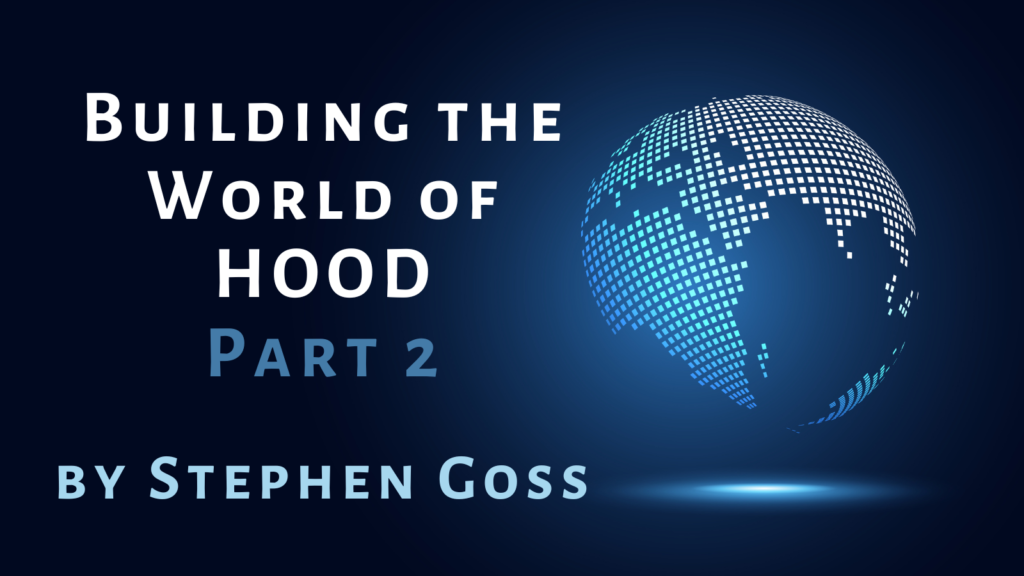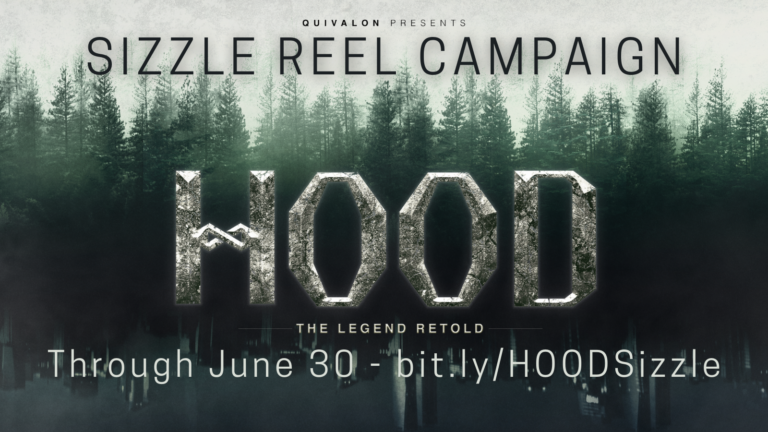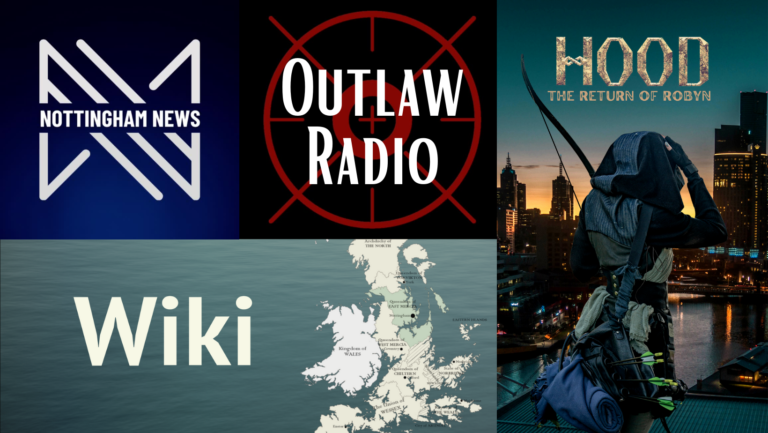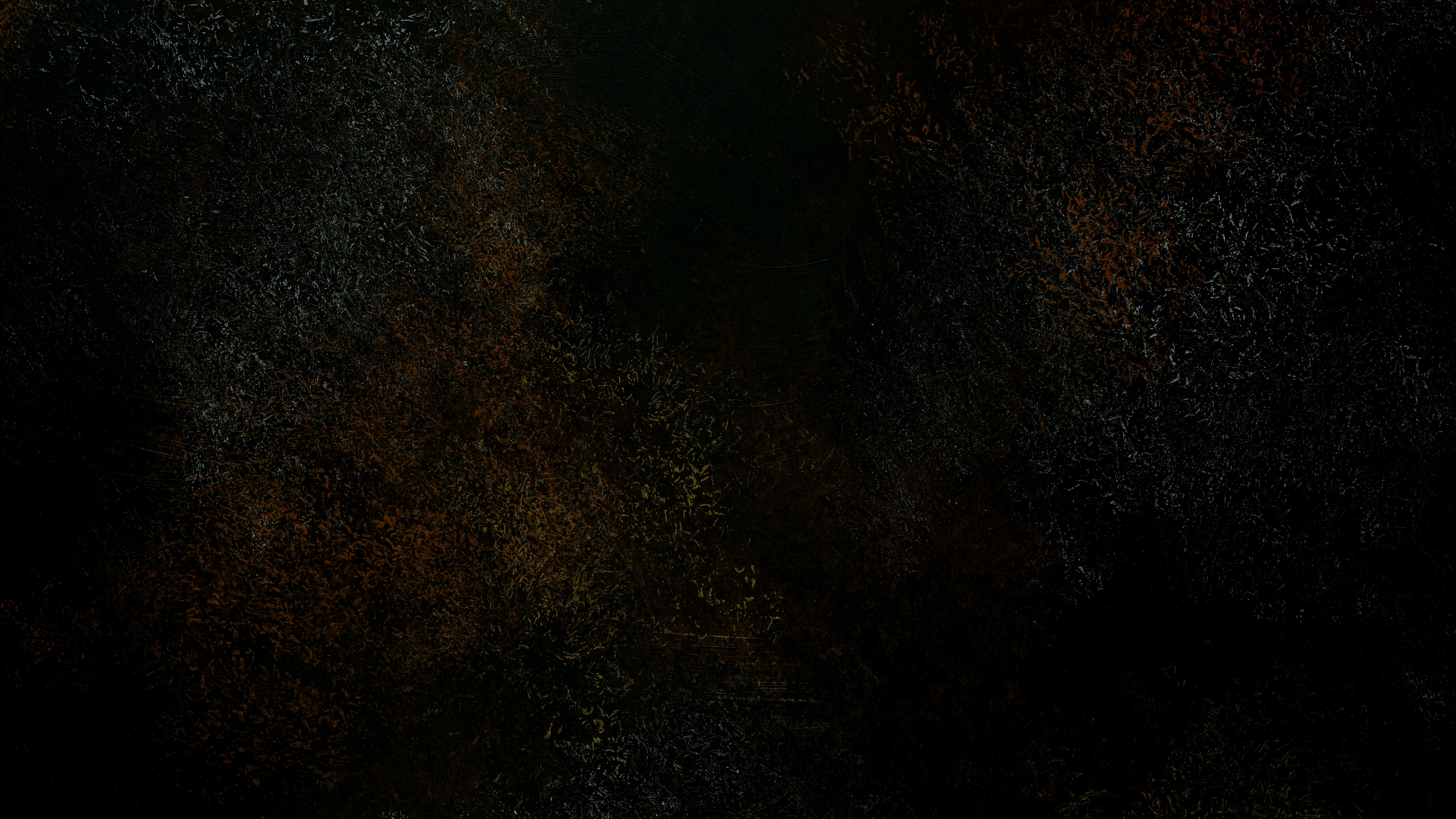Written by Stephen Goss

It should come as no surprise that when you change eight centuries of history and add some magic to taste, you’re going to have to do a lot of worldbuilding.
And that’s on top of what Anne had already built before I joined the project. But it was the decision to produce HOOD independently that meant that we, the incoming creative team, had to reckon with fleshing out that world (yes, that is a pun if you know your Hycathic lore!)
I could take you on a full, no-holds-barred tour of the worldbuilders’ yard, but I might go off on a tangent, reveal something I’m not supposed to, or produce enough text to rival my wiki articles. Most likely the latter – I have been warned. So I’ll settle for a whistlestop ride through the lore as it came together (more or less), and how that’s helped us shape a living, breathing world. It’s been a significant, serious, and sometimes Sisyphean task, but I do share Anne’s view that it’s a lot of fun as well.
A magical reality
You’ll have read in Anne’s blog how magic was not originally part of her concept and she added it shortly before the pandemic began. All of which meant that the majority of the lore around our magic has been created since HOOD became a team project. Anne’s original series bible stipulated female witches who gained their powers at puberty, and whose lineage stretched back to the Underworld. That’s mostly still the case, except that they are now born with their powers and we don’t call them ‘witches’ any more.
That very first bout of group worldbuilding was where we laid down several elements of our Hycathic lore that have stood the test of time, and I’m so excited to get to specifics that I just hinted at one: names. Distinctive names. This is a great project to be on if you like naming fictional people, places, and institutions. Once we centred our new magical religion on the classical deity Hecate, it seemed fitting that her name would ripple through its vocabulary, and so a series of experiments with that name led to the witches who held her magic becoming ‘Hycathae’. That’s how they’ve been known ever since.
A New Religion is Born
Naturally, the religion became ‘Hycathism’ or ‘the Temple of Hycath’, and work duly began on formalising the fine details of the magic, its basis in nature, and the tiers of power that different Hycathae could have, along with important elements of the mythos that included the sacred number eight. It’s at this point that I would like to shout out former team member Allan Smith, who made several valuable contributions to this part of the lore that remain to this day, as well as being an early historical sounding board who was instrumental in making Hycathism a pagan religion persecuted by Catholicism.
All this theory was first truly put into practice shortly afterwards, when HOOD became a transmedia project and we were storylining Clash of the Cousins. Anne wanted to base the point of divergence from ‘real’ history into our fictional history around Empress Matilda and her rightful claim to the English throne, usurped by her cousin, King Stephen, who had the Catholic Church’s support. Maud, as we often refer to her, was changed into a Hycatha and her cause grew to symbolise the uprising of Hycathism against the Church in England, whilst not straying from its equally important status as a protest against the patriarchy of the time. Our six-part audio drama gave us the opportunity to weave the magic and religion we had created into tales of succession, siege, and subterfuge in the 12th century. Maud emerged victorious as in ‘real’ history but, with her cousin already dead, was able to consolidate her victory. And history was (re)made.
A whole new world
All right. You can stop singing now.
Having effectively restarted English history from scratch and brought in a Hycathic matriarchy under Maud, we had to create new tent-pole events to account for the evolution of this world. New regions, new names, and, most recently, a new dating system styled as YE (Year of the Empress). Hycathism forged into Europe, driving the Catholic Church out altogether, whilst the consequences of this back home forced the division of England into Queendoms of the Anglia Isle.
A coup, an incident with strawberries and an uprising pushed the Isle beyond matriarchy, but not back to patriarchy. And sooner or later, climate change came into play as the unfortunate after-effect of a widespread and destructive war waged and lost by a trio of powerful Hycathic sisters; the Great Torrent decimated the Anglia Isle and caused a severe famine, which would culminate in the abortive Promised Land Campaign, in which Robyn herself fought and was captured. (Intrigued? Read all about it)
The Anglia Isle
And so the global boils down to the local. It’s one thing to have your broad strokes, but we are just as happy to delve into what life in our Nottingham and its Queendom, East Mercia, is like. Anne found a list of questions online that had been compiled to help creators track the infrastructure of their fictional worlds, which you can peruse at your leisure. Working from that in the first instance, we have spent many fruitful hours discussing such important considerations as how a country and city-state wracked by decades of famine and wealth inequality operates a justice system, what kind of vehicles you can own if fuel is scarce, and exactly how much of a role the Temple of Hycath still has in a time when the religion is inextricably linked with recent and costly wars.
Every new piece of groundwork we lay not only adds texture and nuance to the main story, but also opens up corners of the world which our transmedia can place a particular focus on. After all, this is a world where people live, laugh, love, swear, cheer on their favourite Champions and watch the news. Or do they sneakily tune their aerial to Will Scarlett and Bucky’s Outlaw Radio broadcasts? In either case, you’re going to need a world’s worth of story material to draw from.
A place to bring it all together
With so much lore, mythos, and history, not to mention a gallery of characters from past to present, it made sense to set up a wiki for our project as it grew [link]. It covers everything from Robyn Loxley to her distant ancestor Margaret, as well as providing much more detail on Hycathism and the many seismic changes it brought about down the years. Not that we’re anywhere near finished, mind you – there will be more articles, opening up more of the world. And we still meet every so often to conjure up new history and lore, so there’ll be plenty of incoming source material.
(Also, don’t tell anyone, but we definitely sometimes use it on the team for our own reference when we’re doing a new bit of worldbuilding. You didn’t hear this from me, all right?)
The beauty of this is that we get to keep doing it. And it never goes the way you expect it either – you can start a meeting planning a battle and end up with a siege, a political campaign, or even a truce. And so much of that comes from still having a team of writers to take the seed of an idea to ever unpredictable places.
But enough about us. If you had 800 years and more of new history to add to, where would you start? A 15th century coup or a modern day social initiative? And what would you want to do differently?


